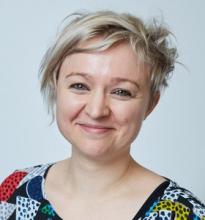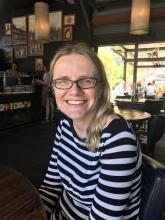Introduction to Causal Inference (Summer School 2022 days 1-4)
In this era of “data science” it is vitally important to clearly articulate the questions that we ask of data, understand the challenges inherent in answering different types of questions, and ensure that our analysis methods are suitably aligned. An overwhelming number of clinical and public health research studies ask “causal” questions, for example about the effect of treatments, policies, behaviours and other exposures on health outcomes. These questions are key to guiding decision making in health policy and practice when the goal is to improve patient outcomes and population health. Causal inference requires carefully structured reasoning to guide appropriate statistical analysis. This 2-part workshop will provide a comprehensive introduction to causal thinking and the key methods for defining and estimating causal effects.
N.B. Registrations are available for Part 1 only or for Parts 1 and 2.
Part 2 only registration will only be available if you have taken the course “Observational studies: Modern concepts & analytic methods” delivered by the Clinical Epidemiology and Biostatistics Unit (CEBU) at the Melbourne Children’s campus. (Part 1 is identical to the first half of that course). Please email to confirm this prior to registering.
Part 1 – Study Design
February 8 & 9 1:30-5pm
This course introduces key causal inference concepts and outlines an approach for designing causal analyses of observational studies. Specifically, we will examine what is meant by causal inference and how to identify causal questions, followed by an introduction to the target trial approach for defining causal effects. We introduce directed acyclic graphs (DAGs) and show how they can be used to understand potential biases in emulating the target trial. We then bring it all together, demonstrating an approach to planning causal analyses.
The course includes lectures followed by tutorials that develop understanding of the concepts. All lectures and tutorials include illustrations from real-world observational epidemiological studies. Electronic copies of presentation materials will be made available online.
Prerequisites: It is assumed that students will have a background including elementary statistical concepts, such as population and sample, and standard methods for simple analyses (mean difference, chi-squared test etc).
Registration closes 5pm Friday 4th February
Part 2 – Analysis Methods
February 10 & 11 1:30-5pm
This course introduces three key methods for causal effect estimation: standard regression, g-computation and inverse probability weighting (IPW).
Lectures and tutorials will help ground understanding of the methods, underlying intuition, and assumptions, whilst a hands-on computer practical (in R and Stata) will cover their practical implementation. All lectures and tutorials include illustrations from real-world observational epidemiological studies. Electronic copies of presentation materials will be made available online.
Prerequisites: Students must have done Part 1 of the course, either during this Summer School or through the aforementioned CEBU course at the Children’s/MCRI. To do the computer practical, students must also have a sound working familiarity with Stata or R and have the corresponding software installed on their computer or laptop.
Registration closes 5pm Tuesday 8th February










